The 5 Musicians That Metallica’s Robert Trujillo Inspired
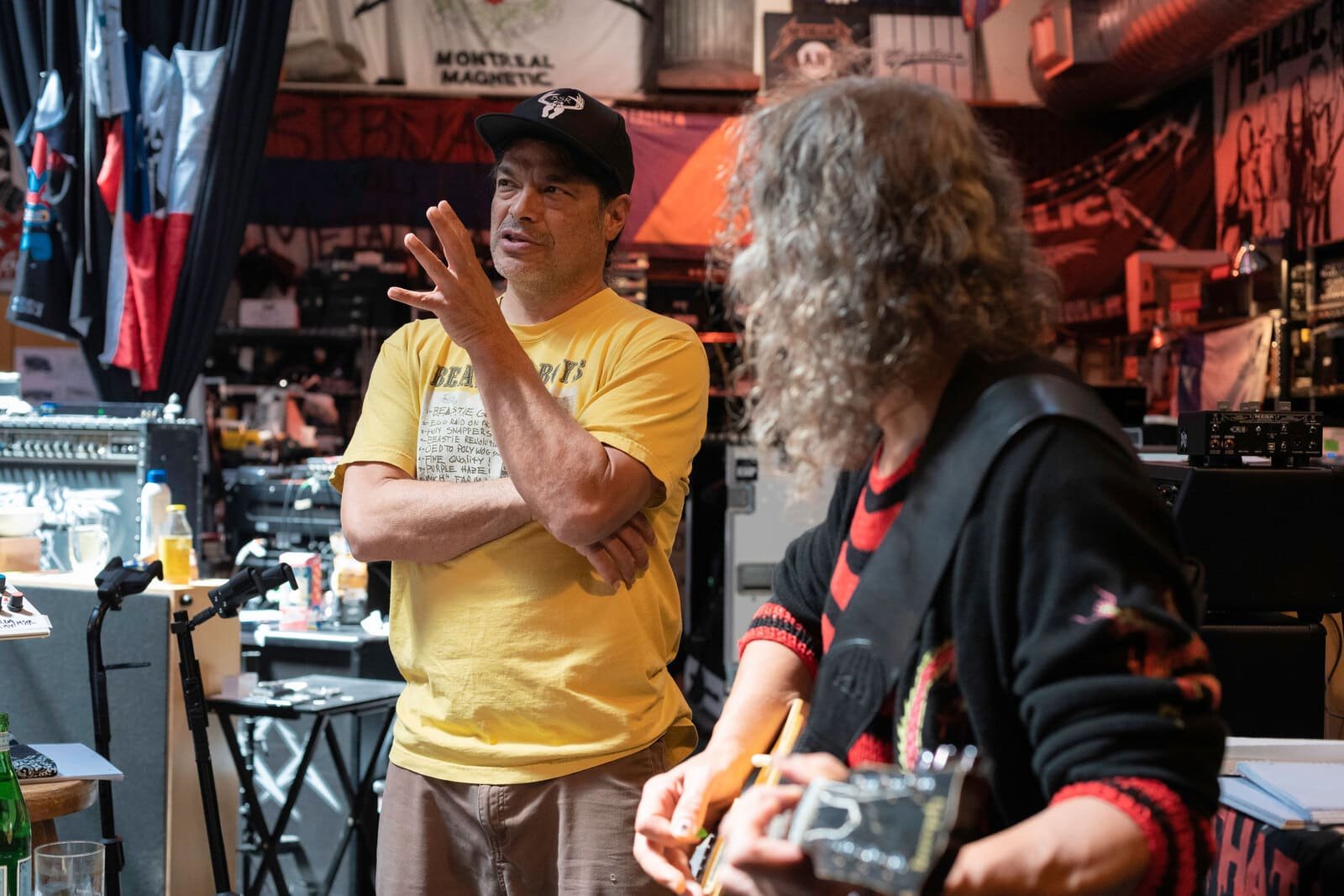
Robert Trujillo picks musicians who give inspiration to him. Metallica‘s bassist and one of the most known bassists and he likes to add different approaches to his songs with tunes and playing bass style.
Robert Trujillo’s Inspired Musicians of All Time
We start with Robert Trujillo‘s born date October 23, 1964, in Santa Monica, California. He has Mexican and Native American ancestors. Trujillo was up in Culver City, California, where his father was a high school teacher. Robert Trujillo became interested in music as a youngster since his mother was a major admirer of soul music, particularly artists such as Marvin Gaye, James Brown, and Sly and the Family Stone.
Robert Trujillo said “Jaco was my hero growing up,” and added that the legendary jazz bassist revolutionized his perception of what the instrument could accomplish: “Hearing him was like hearing Eddie Van Halen playing “Eruption” for the first time: you wondered, ‘What instrument is that?'” I was drawn to jazz fusion and expanded from there. But Jaco was much more than his jazz character. He was funk, rock, and soul all rolled into one. And his entire demeanor was punk.”
Trujillo started playing in “a bunch of backyard party bands,” covering Black Sabbath, Ozzy Osbourne, Rush, and Led Zeppelin songs. When he was 19, he went to jazz school with the goal of becoming a studio musician, but he kept his enthusiasm for rock and metal alive.
He also joined Metallica on February 24, 2003, two years after the departure of Jason Newsted. He met and befriended his future bandmates when Suicidal Tendencies backed Metallica on their Nowhere Else to Roam tour in 1993, and again the following year on the Crap Hits the Sheds Tour. Metallica paid Robert Trujillo a million dollars as an advance for joining the band.
20 years later, Metallica will release its eleventh studio album ‘72 Seasons‘ on April 14, 2023, via Blackened Recordings.
During his appearances in magazines, Robert Trujillo shares his favorite musicians that inspired him:
- Santana
- Black Sabbath
- The O’Jays’ Anthony Jackson
- Jaco Pastorius
- Ohio Players
Metallica‘s bassist Robert Trujillo shared to Top 5 Favorite Musicians Of All Time in his last interview with So What! fan magazine and The Vinyl Guide. Here is the Robert Trujillo picks musicians as follows:
1. Santana
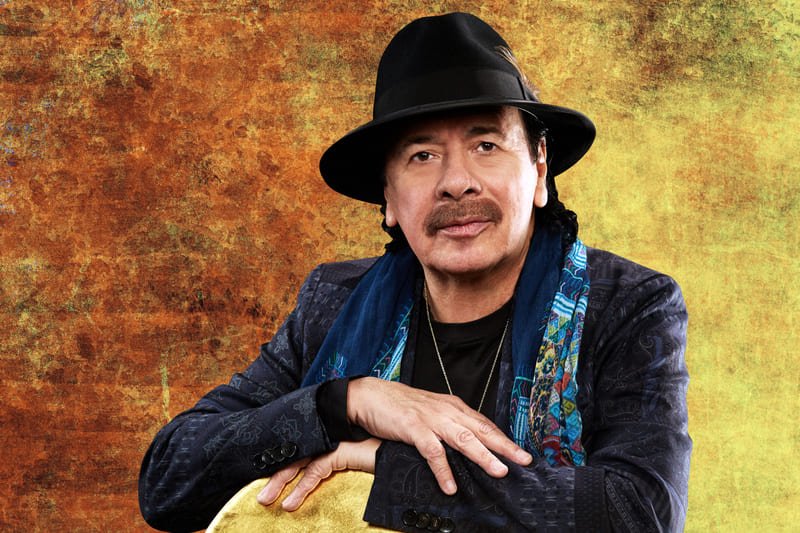
In 2023, Robert Trujillo to So What!:
“I’m saying it’s all of ours because I know, for me personally, every note that I played on this record had a certain importance and impact, and it was coming from the heart. More than any of the other records I’ve made with Metallica, this album really resonated what was going on in my life. And I think that- I mean, I don’t even think…
I know people feel about that. That’s the magic of music. That’s why if you listen to old classic songs, those guys are playing from the heart, they’re playing from experience, and every note they’re playing means something, whether it’s Black Sabbath or even Santana. Carlos is pulling it from a place of where he is, and that’s the passion he’s conveying through his instrument. That’s how I feel about this record. I really do believe that we were all playing from our hearts, there’s a collaborative spirit in that alone, and that’s something that is a magic ingredient on 72 Seasons.”
2. Black Sabbath
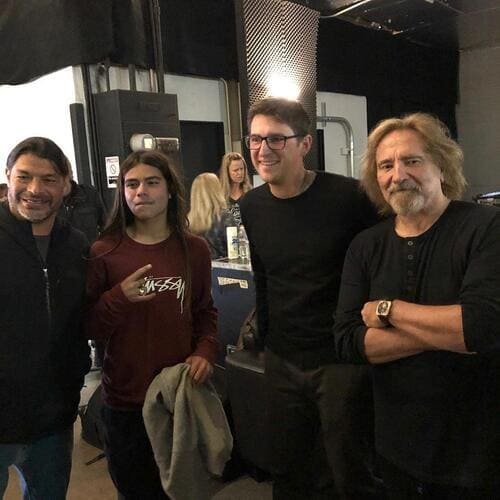
In 2022, Robert Trujillo to The Vinyl Guide:
“For me, he was one of the biggest influences. I’d have to say – Jaco, Geezer Butler from Black Sabbath, and Anthony Jackson who played bass on ‘For the Love of Money.’
And I ended up meeting him around the time that we were filming for the interviews, and he ended up being really cool, and we stayed in contact, and I always sort of channeled their energy into what I would write for Infectious Grooves.”
3. The O’Jays’ Anthony Jackson
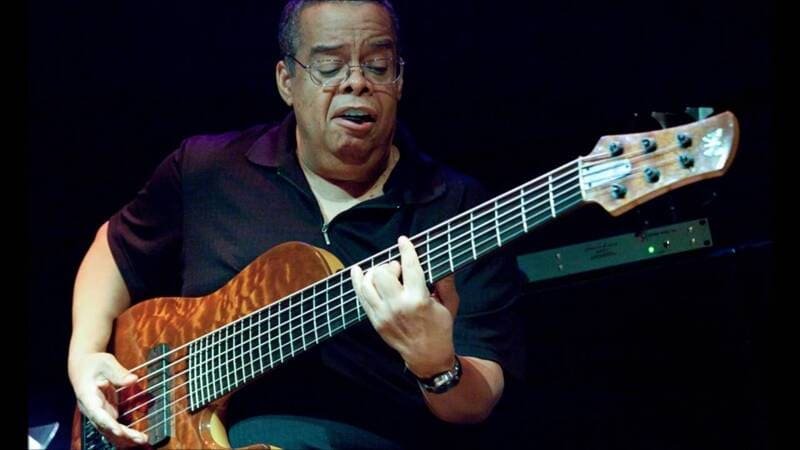
In 2022, Robert Trujillo to The Vinyl Guide:
Robert Trujillo says jazz bassist Jaco Pastorius, Black Sabbath’s Geezer Butler, and The O’Jays’ Anthony Jackson as his biggest inspirations and he explains the reasons behind his picks.
“For me, he was one of the biggest influences. I would have to say – Jaco, Geezer Butler from Black Sabbath, and Anthony Jackson who played bass on ‘For the Love of Money.’
And I ended up meeting him around the time that we were filming for the interviews, and he ended up being really cool, and we stayed in contact, and I always sort of channeled their energy into what I would write for Infectious Grooves.”
4. Jaco Pastorius
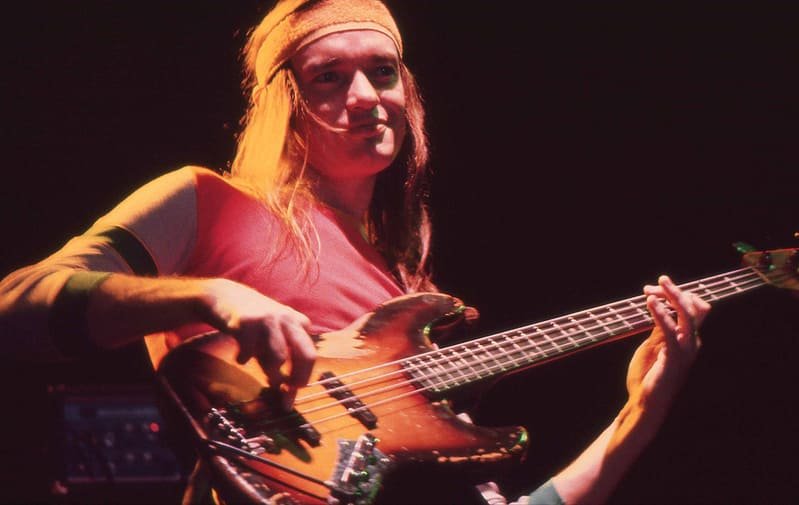
In 2022, Robert Trujillo to The Vinyl Guide:
“There’s a lot of specific moments where I’m actually pulling directly from the people that I grew up listening to, and Jaco is definitely a huge inspiration for Infectious, absolutely. A song like ‘Violent & Funky,’ you know, it’s not a fretless bass, but that is absolutely kind of inspiration from him. And the same thing with the song ‘Therapy,’ which featured Ozzy [Osbourne], so it’s all there.”
5. Ohio Players
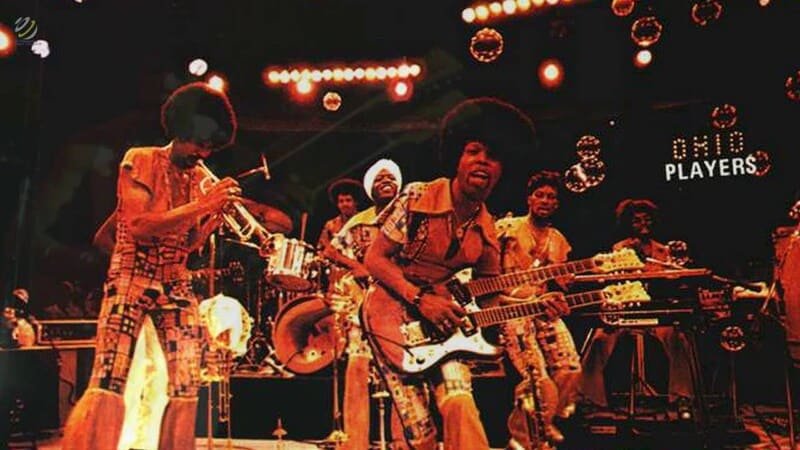
In 2023, Robert Trujillo to So What!:
“Well, here’s what happened with me. Everybody’s going to have their own story of what they went through, and that’s totally normal, the way it should be. My version is going to be different.
I was just coming back from performing with Kirk on the East Coast in Columbia, South Carolina. We were playing a Wedding Band show. Kirk had an event, and we went out there with Jon Theodore, Doc Coyle, Whit Crane, and Bobby Patterson. We were having a great time playing covers by bands that we enjoy and love, ranging from Black Sabbath to Ohio Players. We arrived back in California, and literally the next day, everything shut down for a good year. So we did have a festive experience right before the lockdown. Not a lot of people got to have that, and I was pretty grateful for at least that.
Given where I live and my mindset, whenever things start to get too crazy, it’s nice to have creative outlets to take you away from the madness. It’s also nice to be able to go on a hike. We live in the mountains, so we’re able to find a bit of therapy.
So I was in that mode. I was coming from music; we were challenging ourselves with a different level of creativity. Then that whole experience of everything turning into madness. And at that point, trying to find a place where I could get my head together. Maybe climb a mountain or whatever just to figure out what the next step was going to be. Because it was just so much uncertainty. That’s what happened with me.”